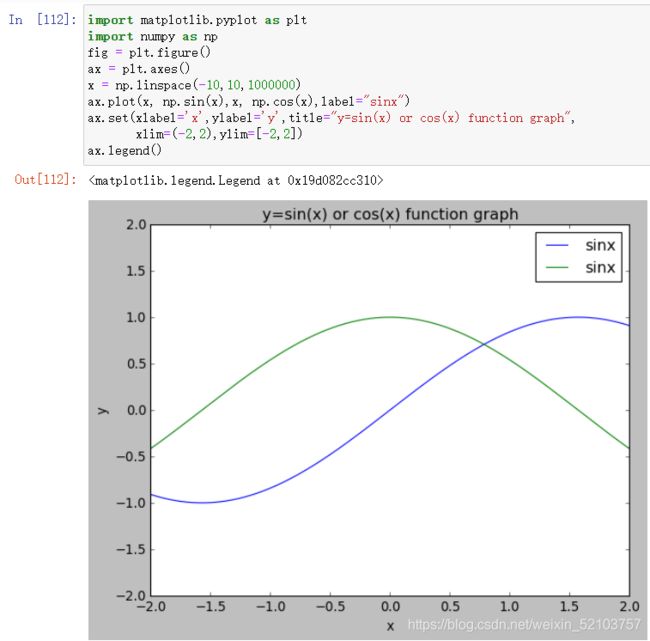- Python 标准库之 logging 模块
36度道
python系列学习笔记python
1.logging模块简介在软件开发过程中,了解程序的运行状态、记录重要事件以及排查错误是至关重要的。logging模块为Python提供了灵活且强大的日志记录功能。它允许开发者控制日志的输出内容、输出位置(如文件、控制台)、日志级别(用于过滤不同重要程度的日志信息)等,帮助开发者更好地监控和调试程序。2.基本使用简单配置与输出:importlogging#配置日志基本设置logging.basi
- python 标准库之 functools 模块
36度道
python系列学习笔记python
functools模块提供了一系列用于处理函数的工具。其中,像partial可以创建一个新的可调用对象,这个对象固定了原函数的部分参数,有点像给函数穿上了“参数防护服”;reduce能对一个序列进行累积计算,就好比是一个勤劳的小会计,按顺序把序列里的数加起来或者做其他运算;wraps主要用于装饰器,它能帮助装饰器函数保留被装饰函数的元信息,比如函数名、文档字符串等,让被装饰函数“表里如一”。底层原
- Python——函数
生如雪花
Pythonpython
一、十进制小数转换成二进制小数【问题描述】编写程序,输入十进制小数(只考虑正数),把它转换为以字符串形式存储的二进制小数,输出该二进制小数字符串。对于转换得到的二进制小数,小数点后最多保留10位。小数点后不足10位,则输出这些位,尾部不补0;小数点后超出10位,则直接舍弃超出部分。【输入形式】十进制浮点小数【输出形式】对应输入小数的二进制小数字符串。若整数部分或者小数部分为0,则输出0。比如输入0
- Python Web框架 Flask vs Django vs FastAPI
ZengDerby
pythonflaskfastapidjango
如果您需要构建大型的、功能丰富的应用程序,Django可能是一个很好的选择。如果您需要更灵活的框架,可以选择Flask来定制开发。而对于追求极致性能和高并发处理的项目,FastAPI可能是一个更加理想的选择。优缺点Flask在小型项目或微服务理想的选择。Flask灵活且轻量,非常适合快速开发小型应用。Flask是一个非常灵活的框架,它允许您根据项目需求进行定制。您可以根据需要选择合适的插件和扩展。
- python if用法
IT技术土狗
python从入门到入狱python
pythonif用法流程控制流程控制即控制流程,具体指控制程序的执行流程,而程序的执行流程分为三种结构:顺序结构(之前我们写的代码都是顺序结构)、分支结构(用到if判断)、循环结构(用到while与for)1、分支结构分支结构就是根据条件判断的真假去执行不同分支对应的子代码2、为什么需要分支结构人类某些时候需要根据条件来决定做什么事情,比如:如果今天下雨,就带伞所以程序中必须有相应的机制来控制计算
- python与数值有关的问题
cbxjsdg
python
1.复数的问题x=123+456j#后面没加j部分为实数,加j部分为虚数print('实数部分',x.real)#表示实数print('虚数部分',x.imag)#表示虚数2.查看数值的类型a=10b=10.0c=1.99E2#表示1.99*10的二次方的意思,这是科学计数法print('数值为',a,'数值类型为',type(a))print('数值为',b,'数值类型为',type(b))pr
- 【架构设计】前置知识
GIS程序媛—椰子
架构设计架构设计
架构设计是软件开发的进阶技能,需要结合理论知识和实践经验。以下是掌握架构设计所需的前置知识及其重要性,以及学习路径建议:一、基础编程能力1.编程语言与核心概念掌握至少一门主流语言(如Java、Python、C#、Go等),理解其语法、特性及生态。核心概念:面向对象(OOP)、函数式编程(FP)、并发/异步、内存管理等。示例:通过Java理解接口、多态、设计模式。通过Go学习并发模型(Gorouti
- Python, C ++开发家庭开支
Geeker-2025
pythonc++
开发一款**家庭开支数字化记录与结算App**是一个非常有意义的项目,旨在帮助家庭用户高效管理开支、记录消费、分析财务状况,并提供结算和预算管理功能。以下是基于**Python**和**C++**的开发方案,结合两者在数据处理、实时通信和系统开发中的优势。---##1.**项目需求分析**家庭开支数字化记录与结算App的核心功能包括:1.**用户管理**:-用户注册、登录,支持家庭成员管理。2.*
- linux执行python脚本conda库_Pycharm使用远程linux服务器conda/python环境在本地运行的方法(图解))...
weixin_39992462
Pycharm使用远程linux服务器conda/python环境在本地运行的方法(图解))1.首先在PycharmTools->Deployment->Configurations打开新建SFTP输入host:ip地址username密码然后点击TestConnection出现下图,则测试成功因为已经连接成功,这时候已经可以读取远程服务器的目录了:2.选择项目mapping(可以跳过3.在Set
- brew mysql client_Mac安装mysqlclient过程解析
weixin_39630440
brewmysqlclient
尝试在虚拟环境下通过pip安装:pipinstallmysqlclient然后报错:OSError:mysql_confignotfound找到官方文档https://github.com/PyMySQL/mysqlclient-python,解释说安装前需安装另一个模块:brewinstallmysql-connector-c但是报错:查看报错信息,在安装mysql-connector-c前先b
- macos安装python-nodejs_MAC平台基于Python Appium环境搭建过程图解
weixin_39612038
前言最近笔者要为python+appium课程做准备,mac在2019年重新安装了一次系统,这次重新在mac下搭建appium环境,刚好顺带写个文稿给大家分享分享搭建过程。一、环境和所需软件概述1.1目前环境:MacOS(10.15.3)1.2所需软件:jdk-8u91-macosx-x64.dmg(jdk1.8及以上版本应该都可以)android-sdk_r24.4.1-macosx.zip(m
- 全网最细!CentOS 7极速部署MySQL 8.0.23实战手册(附最佳参数模版)
从不删库的DBA
Mysqlcentosmysqllinux
一、部署前准备1.1环境检查清单在进行MySQL部署前,请确认以下基础条件已满足:检查项标准要求操作系统版本CentOS6/7(推荐7.6+)内存建议≥4GB(生产环境≥16GB)磁盘空间/分区≥30GB,数据盘按需求规划网络连通性确保yum源可访问二、操作系统基础配置2.1关闭网络管理服务根据系统版本选择相应操作:▶CentOS6#serviceNetworkManagerstop停止Netwo
- python接口自动化
全世界最帅的男人
python自动化开发语言
Python是一种非常流行的编程语言,也是许多接口自动化测试框架的首选语言。下面是一个简单的接口自动化测试框架的思路:1.安装必要的库和工具:在Python中,我们可以使用requests库来发送HTTP请求,使用unittest库来编写测试用例,使用HTMLTestRunner库来生成测试报告。此外,我们还需要安装一个代码编辑器,如PyCharm或VSCode。2.创建测试用例:编写测试用例是接
- Python接口自动化
花落同学
Python自动化从入门到放弃python自动化
4接口自动化4.1使用python实现接口自动化如果不了解接口测试可参考https://ke.qq.com/course/4092904使用Python的request库实现接口测试:importjsonimportrequests#使用session管理:#1.可以自动关联set-cookie里面的内容#2.可以加快与服务器的连接速度session=requests.session()#auth
- Python异步编程:从基础到高级
CarlowZJ
python网络数据库
前言在现代软件开发中,异步编程已经成为一种必不可少的技能。Python的异步编程模型(基于asyncio)为开发者提供了一种高效的方式来处理高并发任务,而无需依赖多线程或多进程。异步编程不仅可以提高程序的性能,还能简化并发代码的复杂性。本文将带你从异步编程的基础概念出发,逐步深入到高级应用,帮助你掌握Python异步编程的核心技能。一、异步编程的基础概念1.1什么是异步编程?异步编程是一种编程范式
- python实现接口自动化
一只小H呀の
python自动化开发语言
代码实现自动化相关理论代码编写脚本和工具实现脚本区别是啥?代码:优点:代码灵活方便缺点:学习成本高工具:优点:易上手缺点:灵活度低,有局限性。总结:功能脚本:工具自动化脚本:代码代码接口自动化怎么做的?第一步:python+request+unittest;具体描述?第二步:封装、调用、数据驱动、日志、报告;详细举例:第三步:api\scripts\data\log\report\until…脚本
- 探索Python中的集成方法:Stacking
Echo_Wish
Python笔记Python算法python开发语言
在机器学习领域,Stacking是一种高级的集成学习方法,它通过将多个基本模型的预测结果作为新的特征输入到一个元模型中,从而提高整体模型的性能和鲁棒性。本文将深入介绍Stacking的原理、实现方式以及如何在Python中应用。什么是Stacking?Stacking,又称为堆叠泛化(StackedGeneralization),是一种模型集成方法,与Bagging和Boosting不同,它并不直
- 【Python】 Stacking: 强大的集成学习方法
音乐学家方大刚
Pythonpython集成学习开发语言
我们都找到天使了说好了心事不能偷藏着什么都一起做幸福得没话说把坏脾气变成了好沟通我们都找到天使了约好了负责对方的快乐阳光下的山坡你素描的以后怎么抄袭我脑袋想的薛凯琪《找到天使了》在机器学习中,单一模型的性能可能会受到其局限性和数据的影响。为了解决这个问题,我们可以使用集成学习(EnsembleLearning)方法。集成学习通过结合多个基模型的预测结果,来提高整体模型的准确性和稳健性。Stacki
- minimind2学习:(1)训练
溯源006
minimind学习学习深度学习生成模型
1、数据下载参考:https://github.com/jingyaogong/minimind/tree/master2、预训练训练6个epochspythontrain_pretrain.py--epochs6训练过程:LLM总参数量:25.830百万Epoch:[1/6](0/11040)loss:8.940lr:0.000550000000epoch_Time:106.0min:Epoch
- 使用Seaborn库中的`violinplot`函数绘制水平小提琴图(Violin Plot)是一种常见的数据可视化方法
code_welike
信息可视化数据分析数据挖掘Python
使用Seaborn库中的violinplot函数绘制水平小提琴图(ViolinPlot)是一种常见的数据可视化方法。水平小提琴图可以展示数据的分布特征,并可以对比不同组别之间的差异。本文将介绍如何使用Python和Seaborn库绘制水平小提琴图,并提供相应的源代码示例。首先,我们需要确保已经安装了Seaborn库。可以使用以下命令在Python中安装Seaborn:pipinstallseabo
- 【集成学习】:Stacking原理以及Python代码实现
Geeksongs
机器学习python机器学习深度学习人工智能算法
Stacking集成学习在各类机器学习竞赛当中得到了广泛的应用,尤其是在结构化的机器学习竞赛当中表现非常好。今天我们就来介绍下stacking这个在机器学习模型融合当中的大杀器的原理。并在博文的后面附有相关代码实现。总体来说,stacking集成算法主要是一种基于“标签”的学习,有以下的特点:用法:模型利用交叉验证,对训练集进行预测,从而实现二次学习优点:可以结合不同的模型缺点:增加了时间开销,容
- 使用Seaborn绘制水平小提琴图
YOUFDJ
python开发语言Python
使用Seaborn绘制水平小提琴图水平小提琴图是一种常用的数据可视化工具,可以用于展示不同类别之间的分布情况。在Python中,我们可以使用Seaborn库的catplot函数来轻松地绘制水平小提琴图。本文将介绍如何使用Seaborn绘制水平小提琴图,并附带相应的源代码示例。首先,确保你已经安装了Seaborn库。如果没有安装,可以使用以下命令在命令行中安装:pipinstallseaborn安装
- Python文件与格式化:编程世界的“读写之道“(技术深挖版)
被窝妄想家
python进阶指南python数据库开发语言
一、文件操作:Python的"读写之眼"1.1文件基础哲学在计算机世界中,文件就像一本本等待翻阅的典籍。Python的open()函数如同手持放大镜,让我们能精确控制阅读和书写:#经典打开模式组合withopen("data.txt","r+",encoding="utf-8")asf:#r+模式:可读可写,文件指针初始位置在开头content=f.read(10)#读取前10个字节f.seek(
- 使用Seaborn绘制小提琴图
CodeWG
python开发语言
使用Seaborn绘制小提琴图在数据分析与可视化中,小提琴图是一种常用的图表类型。它能够展示数据的分布情况,同时还能显示中位数、四分位数和异常值等统计指标。在Python中,我们可以使用Seaborn库来轻松地绘制小提琴图。下面就来详细介绍一下如何使用Seaborn来创建小提琴图。首先,我们需要导入必要的库和数据集。这里我们使用Seaborn自带的数据集tips作为例子。importseaborn
- python实际应用场景代码
yzx991013
python前端服务器
1.自动化文件整理importosimportshutildeforganize_downloads_folder():download_path="/Users/YourName/Downloads"#修改为你的下载路径file_types={"Images":[".jpg",".png",".gif"],"Documents":[".pdf",".docx",".txt"],"Videos":
- python大赛对名_用100行Python爬虫代码抓取公开的足球数据玩(一)
司马各
python大赛对名
在《用Python模拟2018世界杯夺冠之路》一文中,我选择从公开的足球网站用爬虫抓取数据,从而建模并模拟比赛,但是略过了爬虫的实施细节。虽然爬虫并不难做,但希望可以让更多感兴趣的朋友自己动手抓数据下来玩,提供便利,今天就把我抓取球探网的方法和Python源码拿出来分享给大家,不超过100行代码。希望球友们能快速get爬虫的技能。#-*-coding:utf-8-*-from__future__i
- 从入门到进阶:Python数据可视化实战技巧
Blossom.118
分布式系统与高性能计算领域信息可视化python开发语言网络协议springbootjava后端
在数据分析和数据科学领域,数据可视化是将复杂数据以直观图形展示的重要手段。Python作为数据科学领域的首选语言之一,提供了强大的数据可视化库,如Matplotlib、Seaborn、Plotly等。本文将从入门到进阶,逐步介绍Python数据可视化的实战技巧,帮助读者快速提升数据可视化能力。一、入门:Matplotlib基础Matplotlib是Python中最基础、最强大的数据可视化库之一。它
- 【人工智能】大模型的幻觉问题:DeepSeek 的解决策略与实践
蒙娜丽宁
Python杂谈人工智能人工智能
《PythonOpenCV从菜鸟到高手》带你进入图像处理与计算机视觉的大门!解锁Python编程的无限可能:《奇妙的Python》带你漫游代码世界大语言模型(LLM)的“幻觉”问题,即模型生成与事实不符或脱离上下文的内容,是限制其广泛应用的关键挑战之一。本文深入探讨了幻觉问题的成因,包括训练数据的偏差、推理过程中的过度泛化以及缺乏外部验证机制。以DeepSeek系列模型为研究对象,我们分析了其在解
- wooyun知识库爬虫(自动整理保存为pdf)
大囚长
编程人生黑客帝国spiderpython
#!C:\Python27\python.exe#coding=utf8importosimportpdfkitimporturllib2frombs4importBeautifulSoupfrommultiprocessingimportPoolimportsocketsocket.setdefaulttimeout(60)importsysreload(sys)sys.setdefaulten
- HCIA-AI人工智能笔记3:数据预处理
噗老师
华为认证人工智能笔记wpf数据处理AI华为认证
统讲解数据预处理的核心技术体系,通过Python/Pandas与华为MindSpore双视角代码演示,结合特征工程优化实验,深入解析数据清洗、标准化、增强等关键环节。一、数据预处理技术全景图graphTDA[原始数据]-->B{数据清洗}B-->B1[缺失值处理]B-->B2[异常值检测]B-->B3[重复值删除]A-->C{特征工程}C-->C1[标准化/归一化]C-->C2[离散化分箱]C--
- Java常用排序算法/程序员必须掌握的8大排序算法
cugfy
java
分类:
1)插入排序(直接插入排序、希尔排序)
2)交换排序(冒泡排序、快速排序)
3)选择排序(直接选择排序、堆排序)
4)归并排序
5)分配排序(基数排序)
所需辅助空间最多:归并排序
所需辅助空间最少:堆排序
平均速度最快:快速排序
不稳定:快速排序,希尔排序,堆排序。
先来看看8种排序之间的关系:
1.直接插入排序
(1
- 【Spark102】Spark存储模块BlockManager剖析
bit1129
manager
Spark围绕着BlockManager构建了存储模块,包括RDD,Shuffle,Broadcast的存储都使用了BlockManager。而BlockManager在实现上是一个针对每个应用的Master/Executor结构,即Driver上BlockManager充当了Master角色,而各个Slave上(具体到应用范围,就是Executor)的BlockManager充当了Slave角色
- linux 查看端口被占用情况详解
daizj
linux端口占用netstatlsof
经常在启动一个程序会碰到端口被占用,这里讲一下怎么查看端口是否被占用,及哪个程序占用,怎么Kill掉已占用端口的程序
1、lsof -i:port
port为端口号
[root@slave /data/spark-1.4.0-bin-cdh4]# lsof -i:8080
COMMAND PID USER FD TY
- Hosts文件使用
周凡杨
hostslocahost
一切都要从localhost说起,经常在tomcat容器起动后,访问页面时输入http://localhost:8088/index.jsp,大家都知道localhost代表本机地址,如果本机IP是10.10.134.21,那就相当于http://10.10.134.21:8088/index.jsp,有时候也会看到http: 127.0.0.1:
- java excel工具
g21121
Java excel
直接上代码,一看就懂,利用的是jxl:
import java.io.File;
import java.io.IOException;
import jxl.Cell;
import jxl.Sheet;
import jxl.Workbook;
import jxl.read.biff.BiffException;
import jxl.write.Label;
import
- web报表工具finereport常用函数的用法总结(数组函数)
老A不折腾
finereportweb报表函数总结
ADD2ARRAY
ADDARRAY(array,insertArray, start):在数组第start个位置插入insertArray中的所有元素,再返回该数组。
示例:
ADDARRAY([3,4, 1, 5, 7], [23, 43, 22], 3)返回[3, 4, 23, 43, 22, 1, 5, 7].
ADDARRAY([3,4, 1, 5, 7], "测试&q
- 游戏服务器网络带宽负载计算
墙头上一根草
服务器
家庭所安装的4M,8M宽带。其中M是指,Mbits/S
其中要提前说明的是:
8bits = 1Byte
即8位等于1字节。我们硬盘大小50G。意思是50*1024M字节,约为 50000多字节。但是网宽是以“位”为单位的,所以,8Mbits就是1M字节。是容积体积的单位。
8Mbits/s后面的S是秒。8Mbits/s意思是 每秒8M位,即每秒1M字节。
我是在计算我们网络流量时想到的
- 我的spring学习笔记2-IoC(反向控制 依赖注入)
aijuans
Spring 3 系列
IoC(反向控制 依赖注入)这是Spring提出来了,这也是Spring一大特色。这里我不用多说,我们看Spring教程就可以了解。当然我们不用Spring也可以用IoC,下面我将介绍不用Spring的IoC。
IoC不是框架,她是java的技术,如今大多数轻量级的容器都会用到IoC技术。这里我就用一个例子来说明:
如:程序中有 Mysql.calss 、Oracle.class 、SqlSe
- 高性能mysql 之 选择存储引擎(一)
annan211
mysqlInnoDBMySQL引擎存储引擎
1 没有特殊情况,应尽可能使用InnoDB存储引擎。 原因:InnoDB 和 MYIsAM 是mysql 最常用、使用最普遍的存储引擎。其中InnoDB是最重要、最广泛的存储引擎。她 被设计用来处理大量的短期事务。短期事务大部分情况下是正常提交的,很少有回滚的情况。InnoDB的性能和自动崩溃 恢复特性使得她在非事务型存储的需求中也非常流行,除非有非常
- UDP网络编程
百合不是茶
UDP编程局域网组播
UDP是基于无连接的,不可靠的传输 与TCP/IP相反
UDP实现私聊,发送方式客户端,接受方式服务器
package netUDP_sc;
import java.net.DatagramPacket;
import java.net.DatagramSocket;
import java.net.Ine
- JQuery对象的val()方法执行结果分析
bijian1013
JavaScriptjsjquery
JavaScript中,如果id对应的标签不存在(同理JAVA中,如果对象不存在),则调用它的方法会报错或抛异常。在实际开发中,发现JQuery在id对应的标签不存在时,调其val()方法不会报错,结果是undefined。
- http请求测试实例(采用json-lib解析)
bijian1013
jsonhttp
由于fastjson只支持JDK1.5版本,因些对于JDK1.4的项目,可以采用json-lib来解析JSON数据。如下是http请求的另外一种写法,仅供参考。
package com;
import java.util.HashMap;
import java.util.Map;
import
- 【RPC框架Hessian四】Hessian与Spring集成
bit1129
hessian
在【RPC框架Hessian二】Hessian 对象序列化和反序列化一文中介绍了基于Hessian的RPC服务的实现步骤,在那里使用Hessian提供的API完成基于Hessian的RPC服务开发和客户端调用,本文使用Spring对Hessian的集成来实现Hessian的RPC调用。
定义模型、接口和服务器端代码
|---Model
&nb
- 【Mahout三】基于Mahout CBayes算法的20newsgroup流程分析
bit1129
Mahout
1.Mahout环境搭建
1.下载Mahout
http://mirror.bit.edu.cn/apache/mahout/0.10.0/mahout-distribution-0.10.0.tar.gz
2.解压Mahout
3. 配置环境变量
vim /etc/profile
export HADOOP_HOME=/home
- nginx负载tomcat遇非80时的转发问题
ronin47
nginx负载后端容器是tomcat(其它容器如WAS,JBOSS暂没发现这个问题)非80端口,遇到跳转异常问题。解决的思路是:$host:port
详细如下:
该问题是最先发现的,由于之前对nginx不是特别的熟悉所以该问题是个入门级别的:
? 1 2 3 4 5
- java-17-在一个字符串中找到第一个只出现一次的字符
bylijinnan
java
public class FirstShowOnlyOnceElement {
/**Q17.在一个字符串中找到第一个只出现一次的字符。如输入abaccdeff,则输出b
* 1.int[] count:count[i]表示i对应字符出现的次数
* 2.将26个英文字母映射:a-z <--> 0-25
* 3.假设全部字母都是小写
*/
pu
- mongoDB 复制集
开窍的石头
mongodb
mongo的复制集就像mysql的主从数据库,当你往其中的主复制集(primary)写数据的时候,副复制集(secondary)会自动同步主复制集(Primary)的数据,当主复制集挂掉以后其中的一个副复制集会自动成为主复制集。提供服务器的可用性。和防止当机问题
mo
- [宇宙与天文]宇宙时代的经济学
comsci
经济
宇宙尺度的交通工具一般都体型巨大,造价高昂。。。。。
在宇宙中进行航行,近程采用反作用力类型的发动机,需要消耗少量矿石燃料,中远程航行要采用量子或者聚变反应堆发动机,进行超空间跳跃,要消耗大量高纯度水晶体能源
以目前地球上国家的经济发展水平来讲,
- Git忽略文件
Cwind
git
有很多文件不必使用git管理。例如Eclipse或其他IDE生成的项目文件,编译生成的各种目标或临时文件等。使用git status时,会在Untracked files里面看到这些文件列表,在一次需要添加的文件比较多时(使用git add . / git add -u),会把这些所有的未跟踪文件添加进索引。
==== ==== ==== 一些牢骚
- MySQL连接数据库的必须配置
dashuaifu
mysql连接数据库配置
MySQL连接数据库的必须配置
1.driverClass:com.mysql.jdbc.Driver
2.jdbcUrl:jdbc:mysql://localhost:3306/dbname
3.user:username
4.password:password
其中1是驱动名;2是url,这里的‘dbna
- 一生要养成的60个习惯
dcj3sjt126com
习惯
一生要养成的60个习惯
第1篇 让你更受大家欢迎的习惯
1 守时,不准时赴约,让别人等,会失去很多机会。
如何做到:
①该起床时就起床,
②养成任何事情都提前15分钟的习惯。
③带本可以随时阅读的书,如果早了就拿出来读读。
④有条理,生活没条理最容易耽误时间。
⑤提前计划:将重要和不重要的事情岔开。
⑥今天就准备好明天要穿的衣服。
⑦按时睡觉,这会让按时起床更容易。
2 注重
- [介绍]Yii 是什么
dcj3sjt126com
PHPyii2
Yii 是一个高性能,基于组件的 PHP 框架,用于快速开发现代 Web 应用程序。名字 Yii (读作 易)在中文里有“极致简单与不断演变”两重含义,也可看作 Yes It Is! 的缩写。
Yii 最适合做什么?
Yii 是一个通用的 Web 编程框架,即可以用于开发各种用 PHP 构建的 Web 应用。因为基于组件的框架结构和设计精巧的缓存支持,它特别适合开发大型应
- Linux SSH常用总结
eksliang
linux sshSSHD
转载请出自出处:http://eksliang.iteye.com/blog/2186931 一、连接到远程主机
格式:
ssh name@remoteserver
例如:
ssh
[email protected]
二、连接到远程主机指定的端口
格式:
ssh name@remoteserver -p 22
例如:
ssh i
- 快速上传头像到服务端工具类FaceUtil
gundumw100
android
快速迭代用
import java.io.DataOutputStream;
import java.io.File;
import java.io.FileInputStream;
import java.io.FileNotFoundException;
import java.io.FileOutputStream;
import java.io.IOExceptio
- jQuery入门之怎么使用
ini
JavaScripthtmljqueryWebcss
jQuery的强大我何问起(个人主页:hovertree.com)就不用多说了,那么怎么使用jQuery呢?
首先,下载jquery。下载地址:http://hovertree.com/hvtart/bjae/b8627323101a4994.htm,一个是压缩版本,一个是未压缩版本,如果在开发测试阶段,可以使用未压缩版本,实际应用一般使用压缩版本(min)。然后就在页面上引用。
- 带filter的hbase查询优化
kane_xie
查询优化hbaseRandomRowFilter
问题描述
hbase scan数据缓慢,server端出现LeaseException。hbase写入缓慢。
问题原因
直接原因是: hbase client端每次和regionserver交互的时候,都会在服务器端生成一个Lease,Lease的有效期由参数hbase.regionserver.lease.period确定。如果hbase scan需
- java设计模式-单例模式
men4661273
java单例枚举反射IOC
单例模式1,饿汉模式
//饿汉式单例类.在类初始化时,已经自行实例化
public class Singleton1 {
//私有的默认构造函数
private Singleton1() {}
//已经自行实例化
private static final Singleton1 singl
- mongodb 查询某一天所有信息的3种方法,根据日期查询
qiaolevip
每天进步一点点学习永无止境mongodb纵观千象
// mongodb的查询真让人难以琢磨,就查询单天信息,都需要花费一番功夫才行。
// 第一种方式:
coll.aggregate([
{$project:{sendDate: {$substr: ['$sendTime', 0, 10]}, sendTime: 1, content:1}},
{$match:{sendDate: '2015-
- 二维数组转换成JSON
tangqi609567707
java二维数组json
原文出处:http://blog.csdn.net/springsen/article/details/7833596
public class Demo {
public static void main(String[] args) { String[][] blogL
- erlang supervisor
wudixiaotie
erlang
定义supervisor时,如果是监控celuesimple_one_for_one则删除children的时候就用supervisor:terminate_child (SupModuleName, ChildPid),如果shutdown策略选择的是brutal_kill,那么supervisor会调用exit(ChildPid, kill),这样的话如果Child的behavior是gen_
